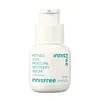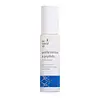What's inside
What's inside
 Key Ingredients
Key Ingredients

 Benefits
Benefits

 Concerns
Concerns

 Ingredients Side-by-side
Ingredients Side-by-side

Water
Skin ConditioningGlycerin
HumectantPropanediol
SolventNiacinamide
SmoothingDibutyl Adipate
EmollientButylene Glycol
HumectantCaprylic/Capric Triglyceride
Masking1,2-Hexanediol
Skin ConditioningHydrogenated Lecithin
EmulsifyingAmmonium Acryloyldimethyltaurate/Vp Copolymer
Helianthus Annuus Seed Oil
EmollientCholesterol
EmollientAllantoin
Skin ConditioningGlycine Soja Oil
EmollientTocopherol
AntioxidantTocopheryl Acetate
AntioxidantSodium Methyl Stearoyl Taurate
CleansingDaucus Carota Sativa Root Extract
Skin ConditioningPentylene Glycol
Skin ConditioningEthylhexylglycerin
Skin ConditioningAdenosine
Skin ConditioningAsiaticoside
AntioxidantMadecassic Acid
Skin ConditioningCamellia Sinensis Seed Extract
HumectantAsiatic Acid
Skin ConditioningRetinol
Skin ConditioningStearyl Glycyrrhetinate
Skin ConditioningHyaluronic Acid
HumectantMannitol
HumectantCeramide NP
Skin ConditioningCarbomer
Emulsion StabilisingBeta-Glucan
Skin ConditioningBeta-Carotene
Skin ConditioningPhytosphingosine
Skin ConditioningSalicylic Acid
MaskingAcacia Senegal Gum
MaskingAcetyl Tetrapeptide-11
Skin ConditioningPropylene Glycol Alginate
Water, Glycerin, Propanediol, Niacinamide, Dibutyl Adipate, Butylene Glycol, Caprylic/Capric Triglyceride, 1,2-Hexanediol, Hydrogenated Lecithin, Ammonium Acryloyldimethyltaurate/Vp Copolymer, Helianthus Annuus Seed Oil, Cholesterol, Allantoin, Glycine Soja Oil, Tocopherol, Tocopheryl Acetate, Sodium Methyl Stearoyl Taurate, Daucus Carota Sativa Root Extract, Pentylene Glycol, Ethylhexylglycerin, Adenosine, Asiaticoside, Madecassic Acid, Camellia Sinensis Seed Extract, Asiatic Acid, Retinol, Stearyl Glycyrrhetinate, Hyaluronic Acid, Mannitol, Ceramide NP, Carbomer, Beta-Glucan, Beta-Carotene, Phytosphingosine, Salicylic Acid, Acacia Senegal Gum, Acetyl Tetrapeptide-11, Propylene Glycol Alginate
 Reviews
Reviews

Ingredients Explained
These ingredients are found in both products.
Ingredients higher up in an ingredient list are typically present in a larger amount.
Hyaluronic acid is naturally found in healthy skin. It is a humectant, meaning it draws moisture to your skin.
This ingredient helps hydrate, soothe, and protect the skin.
What makes hyaluronic acid so hydrating? It has the capacity to bind or hold large amounts of water.
Fun fact: It is already naturally found in our bodies, such as the fluids of our eyes and our joints.
Studies find this ingredient to have anti-inflammatory and anti-microbial properties. This can help speed up wound-healing.
Hyaluronic acid can be irritating if the molecule has a low-molecular weight, or if the molecules are small.
One study found low-molecular weight hyaluronic acid to be pro-inflammatory, meaning some people may experience irritation. This is because our bodies use hyaluronic acid in the wound-healing process to signal to our bodies, via irritation, that something needs healing.
The same study found high-molecular weight hyaluronic acid to be anti-inflammatory.
These are some other common types of Hyaluronic Acid:
Learn more about Hyaluronic AcidRetinol is a gold-standard ingredient for anti-aging. It is a form of Vitamin A and belongs to the class of retinoids that also includes tretinoin.
Why is retinol famous?
It has the most scientific studies backing up its skin benefits out of all the non-prescription ingredients.
Retinol is proven to:
This is why retinol is effective at removing wrinkles, fading dark spots, treating acne, and reducing the appearance of pores.
Studies show retinol is less effective when exposed to UV. Be sure to look for appropriate packaging to keep your retinol potent (similar to Vitamin C).
Using retinol or any retinoids will increase sun-sensitivity in the first few months. Though studies show retinoids increase your skin's natural SPF with continuous use, it is best to always wear sunscreen and sun-protection.
We recommend speaking with a medical professional about using this ingredient during pregnancy.
Retinol may cause irritation in some people, so be sure to patch test. Experts recommend 'ramping up' retinol use: start using this ingredient once a week and work up to using it daily.
Read about Tretinoin
Learn more about RetinolWater. It's the most common cosmetic ingredient of all. You'll usually see it at the top of ingredient lists, meaning that it makes up the largest part of the product.
So why is it so popular? Water most often acts as a solvent - this means that it helps dissolve other ingredients into the formulation.
You'll also recognize water as that liquid we all need to stay alive. If you see this, drink a glass of water. Stay hydrated!
Learn more about Water